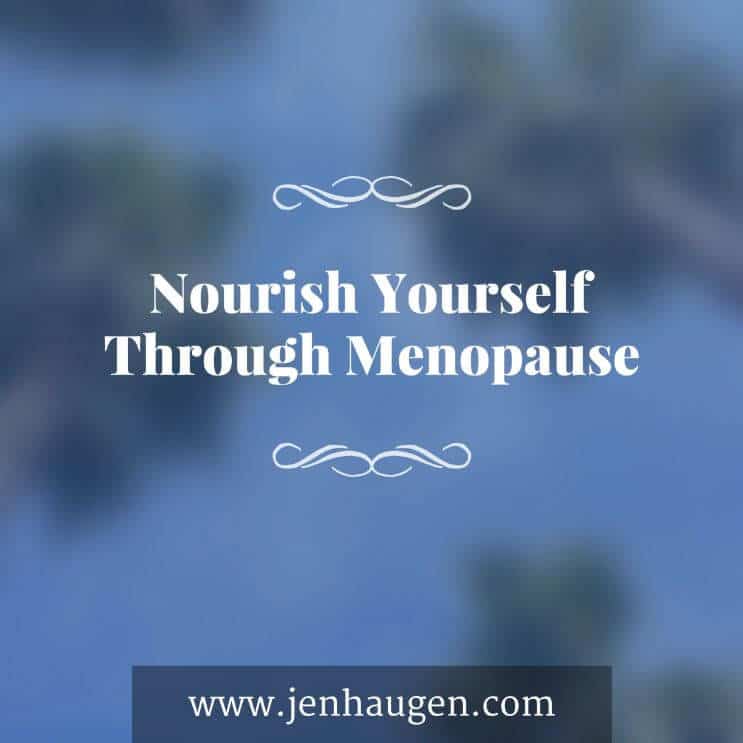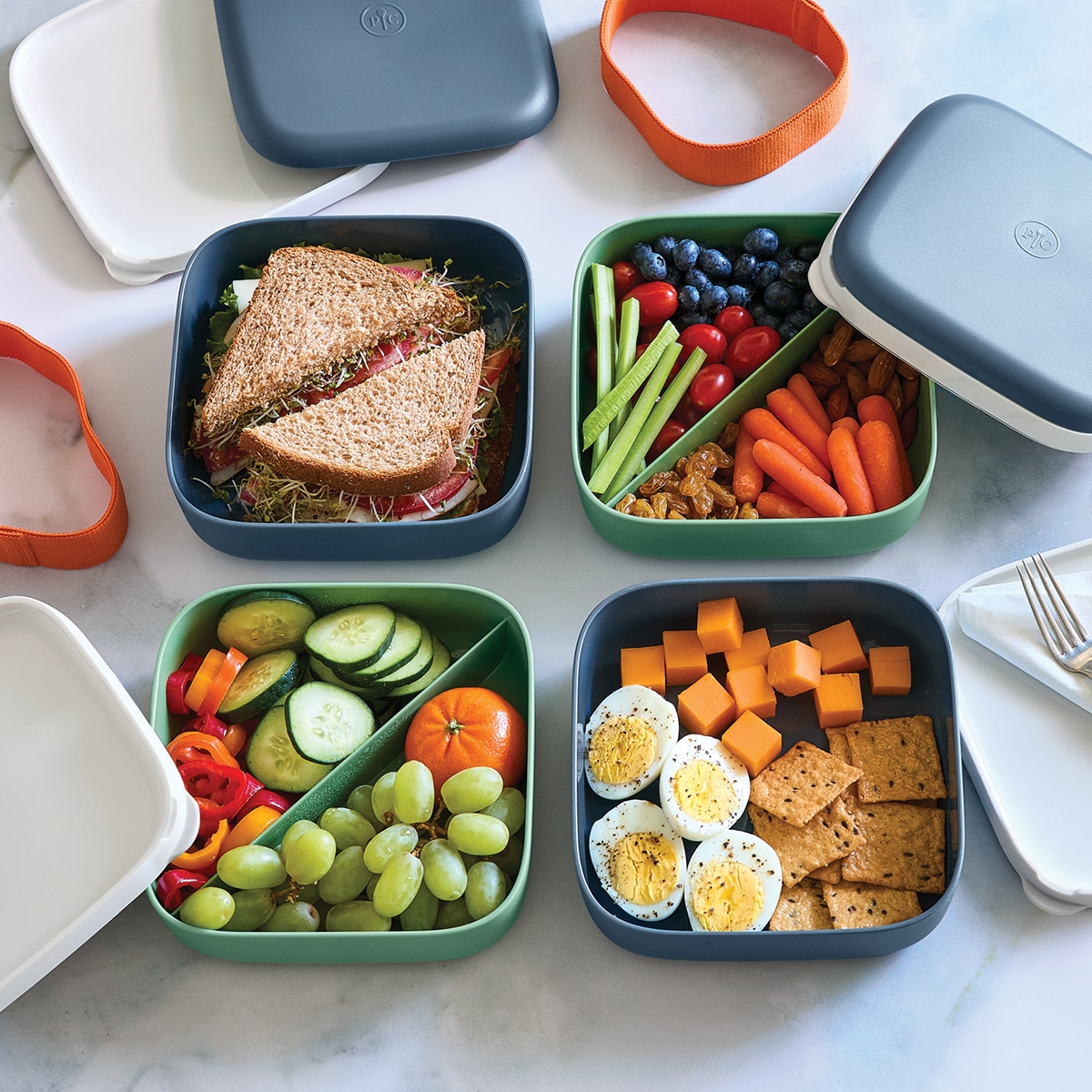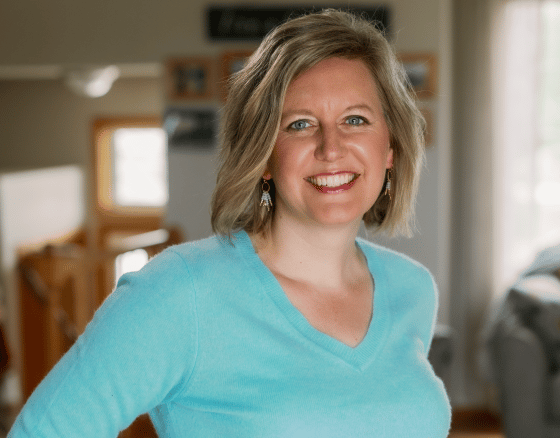Monday Mom: Nourishing Yourself through Menopause
My friends – we are all getting older. And as women, that means in a few years we may begin the process (not the disease!) of menopause. Recently, I attended a nutrition conference, the Minnesota Academy of Nutrition and Dietetics Annual Meeting, held for registered dietitians in Minnesota. And I did something I was a little scared to do. I attended a session on Women and Menopause.
Cue the daunting music.
I went for a few reasons. I went for all of you, so I could share the latest research and recommendations with you on nutrition and fitness through this stage in life. And I went for me, because while I am not at the point of beginning this process, I think it’s important to be educated about what’s to come to take the best care of my body that I can.
So, I’m going to shed some light on this delicate topic.

First of all, let’s define menopause.
When your final menstrual cycle has been confirmed with one year of no menstrual bleeding you are officially menopausal.
Now, there are stages to this process (remember it’s a process, not a disease):
Perimenopause: Lasts on average 4 years (but can range from 0-10 years), with menstrual irregularity and cycle changes.
Menopause: On average this takes place at age 51 and hot flashes, sleep disturbances and mood changes are the highlights here. Length of this stage is about 4 years.
Postmenopause: You are finished with periods but may have bone loss issues as well as vaginal dryness.
Okay, I never thought the v-word would come up in my blog.
Think of this: By 2050, a woman’s life expectancy will be 89 years. That means 1/3 to ½ of our lives will be spent post-menopause! Make that bucket list longer!
On average, during menopause, there’s about a five pound weight gain due to aging and hormonal imbalances. But there’s also sarcopenia (loss of muscle mass) along with our complicated lifestyles changes, like:
- Stress (may be more or less stressed depending on what’s going on with our kids/family)
- Sleeping less
- Working more because the kids are grown
- Driving longer distances to see our kids
- Changes in our eating and drinking habits
Yo-yo dieting is NOT the answer here. It’s actually harder to lose weight when we are on and off diets. In fact, research shows that it takes twice the amount of time to lose weight and we gain back the weight faster when we yo-yo diet.
So, what’s the best way to handle this menopausal process we all must eventually go through?
Nutrition and Fitness.
The goals here would be to:
- Decrease weight gain (especially around the middle area)
- Maintain and restore lean muscle mass
- Prevent future chronic diseases
Registered Dietitian, Val Schonberg, who owns her own private practice and counsels clients in this specialty area, suggests:
- Eat your larger meal during the time of the day you are most active.
- Focus on quality food and nutrient density – you want foods that will provide you with the most nourishment (in other words, the most nutrients)
- Don’t eliminate food groups – eating high quality protein, high quality carbohydrates and high quality fats are important.
- Eat a variety of different foods – don’t just eat the same foods over and over.
- Eat more protein at breakfast (milk -the real stuff -and eggs are excellent sources of protein).
- At each meal, balance your plate to include vegetables, fruit, dairy, meat and whole grains.
- Fat is NOT the enemy, in fact, omega-3 sources of fats can assist in hormone stabilization, lower inflammation and help with mood.
- And stay active. You can’t have nutrition without fitness nor fitness without nutrition.
Knowing more about this process changes my anxiety into calmness and I hope this does for you as well!
Have other questions about menopause? I recommend visiting www.menopause.org for a certified healthcare practitioner who can advise you on recommendations.
Staying active through gardening is something I love to do – and it helps keep my plate balanced too. That’s why I’ve written “The Mom’s Guide to a Nourishing Garden” to help moms everywhere nourish themselves and their families through the power of a garden. Subscribe to my blog for an upcoming announcement on my book giveaway!







Thanks for sharing all that you have learned – I’m getting closer and closer to this point for sure and this information was helpful to get me into that mindset vs. being in any kind of denial that it’s gonna happen!
Thanks, Deanna! I know it’s a bit of a scary thought, but the more we know, the more we can be prepared! Thanks for stopping by!
wow, such great information that credible and practical. Thanks Jen!
Thank you, Chere!
[…] When the process of menopause (see my previous post) begins and finishes, there’s a dramatic increase in bone loss for women, which is why the […]